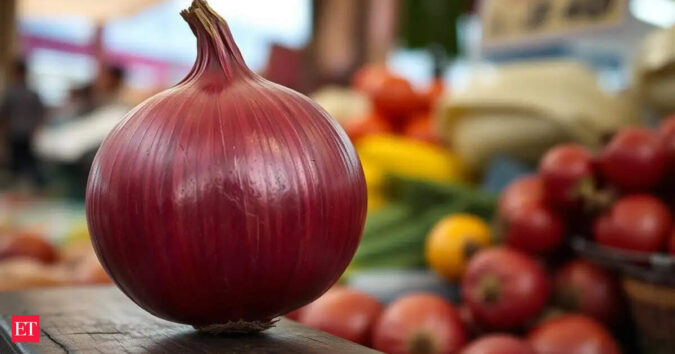Experts said that Bangladesh, once accounting for nearly a third of India’s onion shipments, has bought negligible quantities in the past eight months even though Dhaka prices are three times more. Saudi Arabia, too, has bought rather little for almost a year.
Exporters warned that illegally exported Indian onion seeds are also helping these traditional buyers of Indian onions become self-sufficient, further denting the country’s long-held dominance in this trade.
“We were able to charge a premium for our quality. When we were not in the market for long, our customers searched for alternative suppliers,” said Ajit Shah, a veteran onion exporter and former head of the Horticulture Produce Exporters’ Association (HPEA). “Now, they don’t compare quality but compare the price with our competitors.”
Between August 2023 and April 2025, India had imposed various types of restrictions on onion exports. Earlier, exports were banned for a period of six months from September 2019 and again for five months from September 2020.
As a result, onion prices surged in the markets that typically relied on Indian produce. In 2020, Bangladesh had sent a diplomatic note to India about the frequent changes in its onion export policy. Presently, the Bangladesh government is not importing onions from India to protect its farmers and increase local production.In 2023-24, India had exported 7.24 lakh tonnes of onions to Bangladesh, which was 42% of India’s total export of 17.17 lakh tonnes in that year. During April September 2025-26, India could export 12,900 tonnes of onions to Bangladesh. The Centre, however, believes that the current political dispensation in Dhaka explains its reluctance toward Indian onion shipments.
But exporters argue that frequent changes to the export policy, which is also driven by domestic prices of the primary condiment, have forced India’s traditional export markets to shop elsewhere.
“Not only have we lost many of our traditional buyers, they have also started becoming self-sufficient in onions by using Indian onion seeds,” said Pasha Patel, who is a member of the governing council of the Board of Trade under the Ministry of Commerce.
He also heads the Committee for Onion Policy, set up recently by the Maharashtra government after farmers protested non-remunerative prices.
Exporters said that Saudi Arabia, too, has stopped importing Indian onions for nearly a year. When the government enquired with the exporters, they said the Saudi authorities have stopped issuing import permits to Indian exporters.
“The Saudi counterparts say that they are getting competitively priced onions from Yemen and Iran, in addition to having sufficient availability from the local crop,” HPEA had told the government.
Even the Philippines buys Indian onions only when the Chinese option is not feasible, said traders.
India had exported 57,000 tonnes of onions to Saudi Arabia in 2020-21, which gradually declined in subsequent years to reduce to 223 tonnes in 2025-26.
The irony is that the neighbours are becoming increasingly self- reliant using Indian onion seeds.
Exporters have urged the Horticulture Commissioner to ban the export of onion seeds to the competing countries.
“Countries such as Bangladesh, Sri Lanka and other neighbouring countries are producing onions using Indian onion seeds,” said Vikas Singh, vice president, HPEA. “This trend poses a serious challenge to Indian farmers. Indian onion seeds are in high demand in China and Pakistan.”

